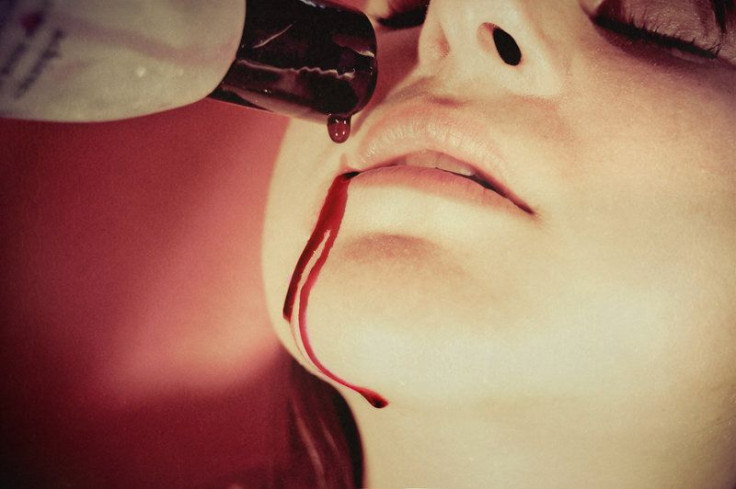UK Deemed 'Addicted Man' Of Europe For Drug And Alcohol Crisis

With a proud drinking culture, the United Kingdom has become not only a nation of beer drinkers but the cornerstone of addiction in Europe, with a greater predilection for drinking and drugging than others on the Mediterranean and elsewhere.
A new report from the Centre for Social Justice, a London-based think tank, finds that the UK has become “the addicted man of Europe” as addiction to alcohol and other drugs cost the government $33 billion and $23 billion, respectively, with the continent’s highest rates of dependency on opiates too.
And aside from prevalent abuse of alcohol and illegal drugs, the former world empire has become a locus of legal drugs of abuse known as “new psychoactive substances,” often newly synthesized drug products sold online and in sketchier retail locations.
A Drinking People
Today, one-quarter of British people drink alcohol at dangerous levels, with one in 20 deemed “dependent drinkers.” The United Kingdom may be the only nation on earth to deploy hundreds of military personnel, along with medical assets, in multiple cities on New Year’s Eve, treating thousands of revelers for acute alcohol intoxication in an effort to save lives. British men experience a rate of alcohol dependence that is second highest in western Europe and seventh in the world, according to Alex Burghart, the Centre’s director for policy.
“We’ve had an unhealthy relationship with [alcohol] for some time,” he told Reuters. “While the general public is drinking less at the acute end the problem is getting worse, people who work in ‘Accident and Emergency’ say it’s a revolving door.”
The nonprofit group advocates a government tax on alcohol to be used for addiction treatment. “The government has backed away from an alcohol pricing strategy — there should be an additional tax for alcohol, which could then be used for treatment for alcoholics,” Burghart told Reuters. “Our [current] intervention is rubbish, [given] the number of alcoholics in treatment is considerably lower than the number of heroin addicts.”
As researchers find that white Americans experience a greater susceptibility to alcohol dependence than other ethnicities, evidence solidly shows northern and western Europeans experiencing higher rates of alcoholism than their southern counterparts on the Mediterranean, according to the Betty Ford Clinic of Rancho Mirage, Calif. Those countries include the United Kingdom, Ireland, Germany, France, Poland, and Russia, according to the Centre.
Christian Guy, the organization’s director, told Reuters that the problem of alcohol and drug dependence transcends the individual as a public health problem. “While our addiction problem damages the economy, is the human consequences that represent the real tragedy,” Guy said. “Drug and alcohol abuse fuels poverty and deprivation, leading to family breakdown and child neglect, homelessness, crime, debt, and long-term worklessness.”
Illegal Drugs And Legal Highs
With regard to illegal drugs such as heroin, the Centre calls the government’s response to the crisis largely inadequate, pointing to addicts stuck permanently in limbo. Currently, 40,000 British heroin addicts take methadone as a prescribed substitute for heroin, a treatment that the Centre deems mostly ineffective over the long term. More than one-third of patients prescribed methadone have been taking the drug for four years, with one in 25 on the fix for more than a decade.
Aside from the paucity of treatment programs for alcoholism in the UK, funding to serve recovering drug addicts has been cut in the current period of economic austerity, with 55 percent of local governments in England slashing funding for residential treatment — despite protestations from the leader of austerity himself, Prime Minister James Cameron.
“Methadone can be a way of stabilizing chaotic drug users, but we found evidence that it is being used to keep a lid on problems,” Guy told Reuters. “Large amounts of addicts are stranded on this state-supplied substitute and forgotten. The broken system is no different to taxpayers supporting an alcoholic by prescribing them vodka instead of them drinking gin.”
Beyond heroin, the country also leads Europe in the lifetime use of amphetamines, cocaine, and ecstasy, with the Baltic countries of Estonia, Latvia, and Lithuania following in second place. And the use of so-called new psychoactive substances has increased 39 percent since 2005 and 2006, the Centre finds. One in 12 British people ages 15-24 have tried them, with 52 deaths last year related to “legal highs.”
The British government’s response to the addiction crisis has been “bureaucratic and inadequate,” the Centre finds, although — to be sure — the problem of legal highs is a moving target. Since 2010, 150 newly synthesized legal highs have come to market, available online and in retail shops of low repute. At the same time, legal highs and illicit drugs continue to be widely available for mail order online, with postal service workers serving as unwitting mules in the drug trade.
Although some experts point to a slight decrease in the rate of heroin addiction, Burghart castigates such statistical blips as misleading, given that addicts are simply moving to other drugs of choice.
Published by Medicaldaily.com



























